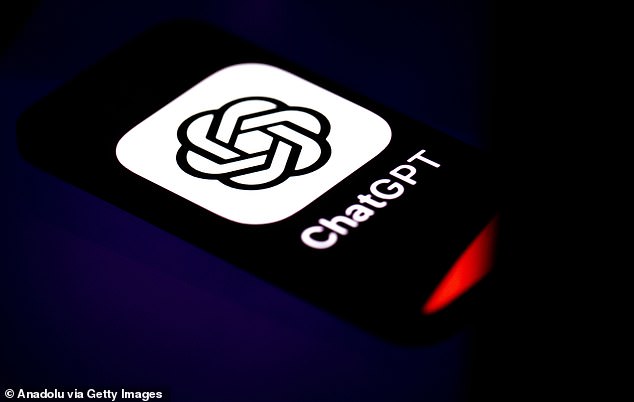Judge’s ‘ridiculous’ decision to use ChatGPT to reach verdict sparks anger
- Dutch judge under fire over ChatGPT consultation
- The judge went to the chatbot twice to get facts for a case
- He was criticized by AI experts, who said ChatGPT is easy to fail
A Dutch judge has been criticised after he used ChatGPT to reach a verdict in a case involving thousands of euros.
The Dutch judge, Mr RJJ van Acht, proudly admitted that he had consulted the AI in his assessment of a dispute between two homeowners who were arguing about whether an extension to one of their homes had reduced the efficiency of the other’s solar panels.
ChatGPT and other AIs like Google’s Gemini have long been criticized for being “irrational” and prone to making simple mistakes.
But this did not prevent the Gelderland subdistrict court from asking ChatGPT twice to list facts about solar panels that directly contributed to the amount of compensation paid to the defendant in the case.
Van Acht said he asked ChatGPT to calculate the “current average” price for electricity, as well as the “average lifespan of solar panels.”
Tech expert Henk van Ess, who also works at investigative journalism site Bellingcat, said ADVERTISEMENT: ‘This is really unacceptable. This is ridiculous. You have to take every statement from ChatGPT with a grain of salt.’
A Dutch judge has been criticized after he used ChatGPT to reach a ruling in a case involving thousands of euros (File photo)

ChatGPT has long been criticized for being “irrational” and prone to making simple mistakes (File Image)
“You can’t just say it’s X lifespan based on ChatGPT. I was shocked by such ignorance and hope other judges aren’t secretly using the same methodology,” he added.
AI expert Jarno Duursma added that using ChatGPT and other large language models (LLMs) was risky because they “have no real knowledge.”
“(ChatGPT) is not a database. It is a computer system that predicts the next word in a sentence. Nothing more,” he added.
Despite the stern warnings, the UK Judicial Office, which supports courts across the country, published guidance earlier this year giving judges the green light to use LLMs in writing legal judgments.
In guidance issued to thousands of judges in England and Wales, the Judicial Office said the tool could be useful for summarising large amounts of text.
But the report said the chatbot was a “poor way to conduct research” and risked fabricating old cases or legal texts.
According to Sir Geoffrey Vos, Master of the Rolls, AI offers ‘significant opportunities for the development of a better, faster and more cost-effective digital justice system’.
“Technology is only going to advance and the judiciary needs to understand what’s going on,” he said. “Judges, like everyone else, need to be very aware that AI can give incorrect answers as well as accurate answers.”
In September, a judge described ChatGPT as “very useful” and admitted using it to write a recent Court of Appeal ruling.
Quoted in the Telegraph, Lord Justice Birss said: ‘I think the most interesting thing is that you can ask these big language models to summarise information. It is useful and it will be used and I can tell you, I have used it.
‘I asked ChatGPT if they could give me a summary of this area of law, and they gave me a paragraph.
‘I know what the answer is because I was about to write a paragraph saying that, but it did it for me and I’ve included it in my judgment. It’s there and it’s very helpful.
He is said to be the first member of the British judiciary to reveal that he used the AI tool to write his sentence.
